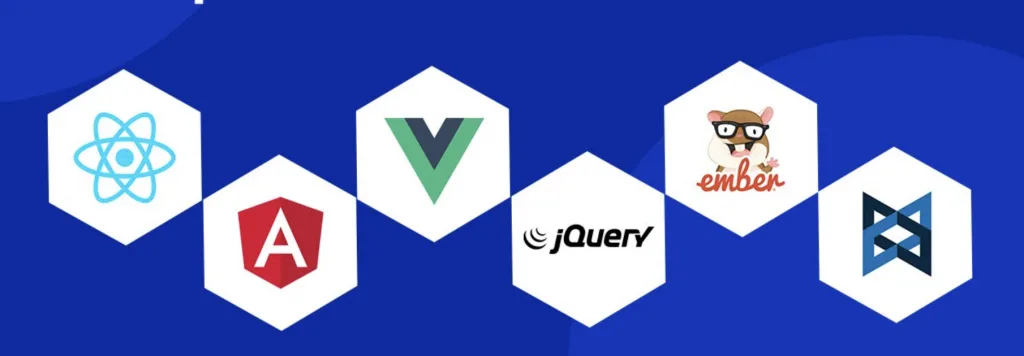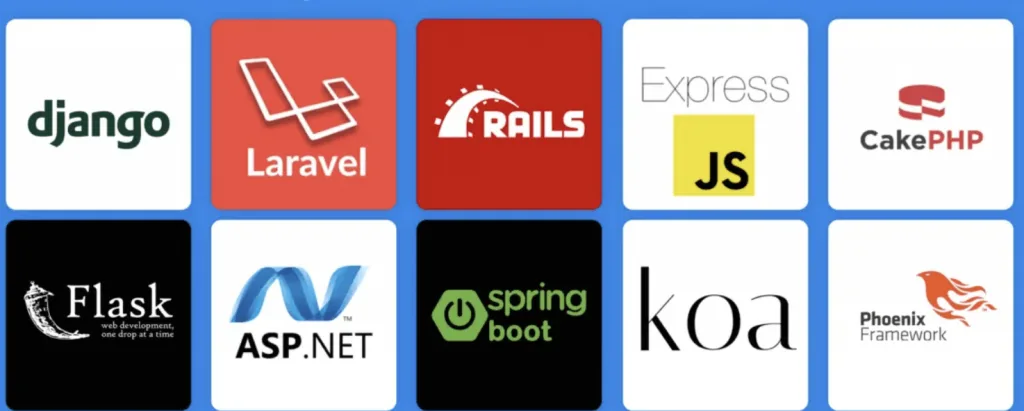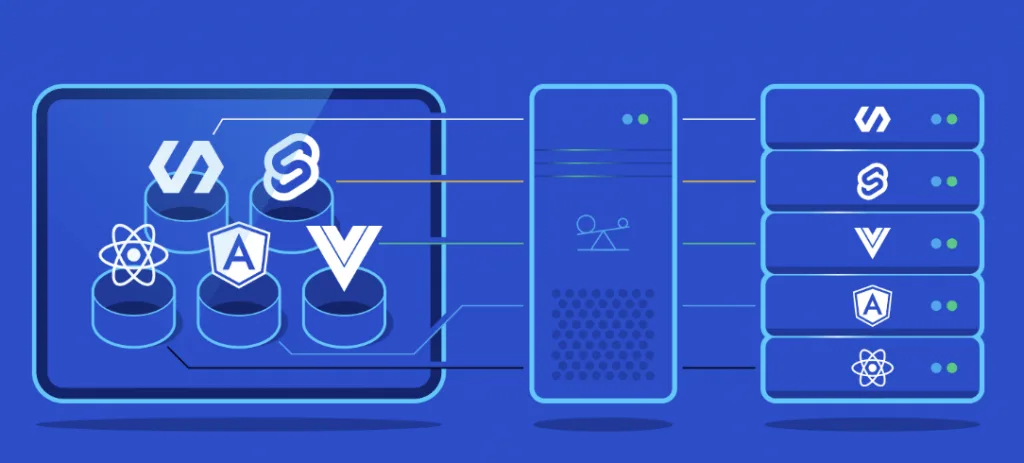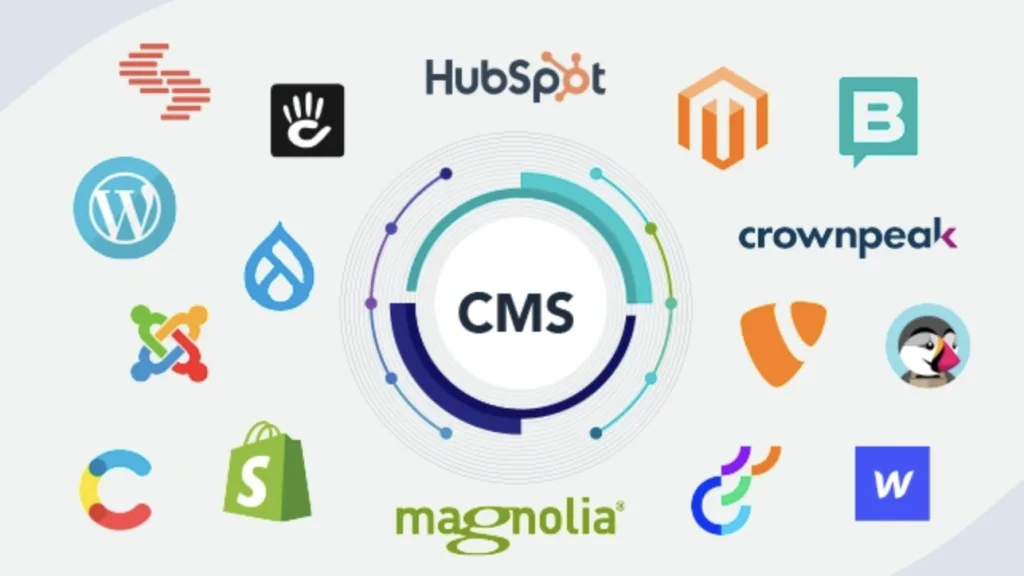Web development frameworks are a pivotal instrument utilized by developers to fabricate dynamic and efficient web applications. Such frameworks furnish a collection of pre-scripted code, libraries, and tools that streamline the development process, culminating in increased speed and efficacy. However, determining the optimal fit for a specific project can be arduous with the various web development frameworks available.
The choice of framework hinges on various factors, including the project’s scale, intricacy, and desired functions. React, Angular, Vue.Js, Django, and Laravel are some of the most popular frameworks in recent times, each offering unique features, benefits, and drawbacks. Consequently, meticulously evaluating each framework’s aptness is critical before selecting the most suitable one for web development projects.
- Web development frameworks streamline development, but choosing the right one is crucial.
- Consider project requirements, ease of implementation, scalability, and integration.
- Frameworks accelerate development, enhance security, and offer community support.
Forms of Web Development Frameworks
Web development frameworks are pre-built structures that furnish developers with tools, libraries, and reusable code to simplify the development process. These are indispensable in creating dynamic and responsive websites and applications. Many web development frameworks exist, each with unique traits and advantages.
● Front-end Frameworks: Examples include React, Angular, and Vue.js, empowering developers to craft dynamic and interactive websites.

● Back-end Frameworks: Responsible for managing requests and responses, with notable examples being Ruby on Rails, Django, and Laravel.

● Full-stack: Purposefully engineered to handle both front-end and back-end development, providing a comprehensive solution for web applications.

● Micro Frameworks: Lightweight frameworks tailored for simpler web applications, requiring minimal configuration.

● CMS Frameworks: Equipped with pre-built content management systems, customizable to meet specific requirements, with examples like WordPress, Drupal, and Joomla.

Selecting the Optimal Framework for Your Organization
Selecting the most suitable framework for your enterprise is a pivotal decision. Frameworks provide a robust arrangement for organizing processes, managing projects, and guaranteeing the coherence of teams. Therefore, picking a framework that aligns with your company’s objectives, culture, and workflows is paramount.
The foremost step in selecting an appropriate framework is to assess your enterprise’s requirements. Consider factors such as the magnitude of your organization, the intricacy of your projects, and the level of cooperation necessary.
Investigate the various frameworks available once you have comprehended your organization’s requirements. Each framework has its potential strengths and weaknesses, so it is essential to contemplate how each aligns with your company’s requirements.
Consider aspects such as ease of implementation, flexibility, scalability, and cost-effectiveness when appraising different frameworks. Evaluating how well the framework integrates with your present tools and processes is also significant.
Ultimately, the most appropriate framework for your organization hinges on your distinct requirements and objectives. Investing time in cautiously assessing your options and electing a framework that will facilitate your organization in attaining success is crucial.
Want to Hire a dedicated development team?
Contact usAdvantages of Web Application Development Frameworks
Web application development frameworks offer a myriad of benefits, making them the preferred choice for developers aiming for efficient and rapid application development. Key advantages include:
Accelerated Development: Frameworks furnish a pre-defined structure, mitigating the need for developers to create the entire application from the ground up. They can employ pre-built components and modules to hasten the development process.
Uniformity and Standards: It furnishes a set of standards and conventions that aid in upholding uniformity across the codebase. This simplifies the process of comprehending each other’s code and collaborating effectively.
Enhanced Security: These are equipped with built-in security features, including input validation and authentication, which help guard against prevalent security vulnerabilities.
Easy Upkeep: Frameworks simplify maintaining and updating applications over time. They provide a lucid separation of concerns and a modular architecture, enabling developers to change specific application parts without affecting the entire codebase.
Robust Community Support: It boasts a large community of developers contributing to their development and upkeep. This means that developers have access to abundant resources, such as documentation, tutorials, and forums, which can assist them in resolving problems and obtaining support when necessary.
Scalability: Frameworks are engineered to be scalable, signifying they can handle substantial amounts of traffic and data without compromising performance.
How can Ficus Technologies help you choose a Framework for Web Development?
Ficus Technologies is a leading software development company, offers expertise in web development using various frameworks. Understanding the complexity of web development, our team of experts, well-versed in frameworks like Angular, React, and Vue, ensures a smooth and efficient process. We possess the technical knowledge to create high-quality web applications tailored to meet your business needs.
Yes, using a framework for web development is highly advantageous. Building web applications may be done in an orderly and systematic way thanks to frameworks. They offer pre-built components, libraries, and tools that simplify common tasks, reduce development time, and ensure code consistency. Frameworks also enhance security by implementing best practices and security features. Moreover, they often have active communities, providing support and updates. While it’s possible to develop web applications without a framework, using one streamline the process, improves maintainability, and helps developers focus on application logic rather than reinventing the wheel, making frameworks an essential tool for modern web development.
Choosing a web development framework requires careful consideration of project requirements, ease of implementation, scalability, and integration capabilities. Evaluate factors such as the project’s scale, complexity, and desired functions. Consider the specific type of framework needed—front-end, back-end, full-stack, micro, or CMS frameworks. Assess ease of implementation, flexibility, scalability, and cost-effectiveness. The optimal choice depends on aligning the framework with your organization’s objectives, culture, and workflows.









An excellent resource for anyone navigating the complexities of web development frameworks. It breaks down the types of frameworks and their advantages, making them accessible to developers and businesses. The emphasis on assessing project requirements and integrating existing tools is particularly insightful.
This article effectively demystifies web development frameworks, clarifying their types and benefits. It’s an informative read for developers and businesses seeking guidance on the proper framework. Focusing on scalability, security, and community support adds depth to the discussion.